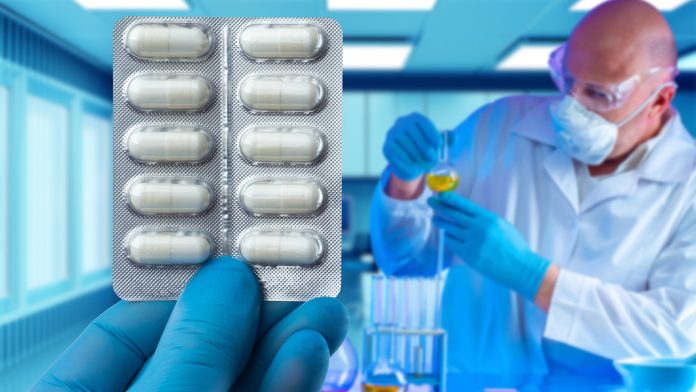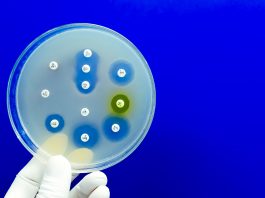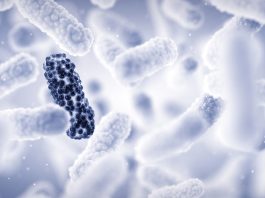Experts at King’s College London have made an exciting breakthrough in cyclic peptides that could open the door for developing new antibiotics to combat antimicrobial resistance (AMR).
Scientists have developed a new method for rapidly making cyclic peptides – an essential type of antibiotic molecule.
The innovative process takes just minutes instead of hours and even days, which it traditionally takes, significantly speeding up antibiotic development.
Lead author Dr Sarah Barry, from the Department of Chemistry at King’s College London, explained: “The global rise in antimicrobial-resistant infections is putting the huge gains in modern medicine over the last century at risk.
“Everything from a cut in your finger to major surgery or cancer treatment requires the use of antibiotics. But when bacteria and viruses evolve to evade these medicines, these life-saving drugs lose their effectiveness.
“We urgently need to invest in antibiotic development – and we hope that breakthroughs like our new method at King’s can inspire renewed efforts towards this goal.”
Challenges in antibiotic development
Developing novel antibiotics is essential, with the rise of AMR making infectious diseases that were once easy to treat increasingly difficult.
Modifying and creating new antibiotics to combat resistance is challenging due to their complex molecular structure.
This is because some are formed of cyclic peptides, which are strings of amino acids joined in a circle. Recreating them in a lab is extremely difficult.
A new method for producing cyclic peptides
The scientists studied a naturally occurring cyclic peptide with promising activity against the bacteria causing TB, the world’s deadliest and increasingly resistant infectious disease.
They discovered that using the natural peptide’s amino acid sequence to create synthetic peptides allowed these peptides to form cycles rapidly.
The researchers believe this straightforward method can be applied to modify antimicrobial molecules, paving the way for new antibiotic development.
Dr Yaoyu Ding, a Research Assistant who’s PhD was based on the project, added: “We have made a key part of the chemistry involved in making these molecules far easier and quicker.
“We hope that this chemistry will enable researchers to make libraries of derivates to enable screening for new antimicrobials.”
The team has also tested this method on other types of peptides, opening possibilities for other classes of drugs, such as anti-cancer agents.









